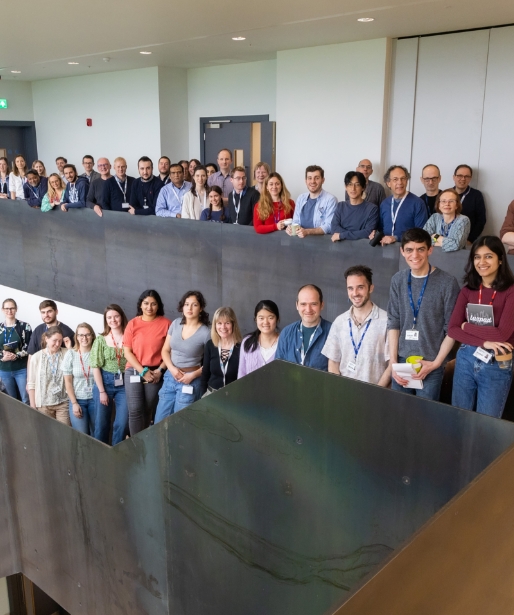Research strategy
We are a discovery science institute of excellence. Operating at the interface between fundamental research and clinical translation, the LMS works towards understanding the mechanisms that underlie multimorbidity and human health across the life course.

Role of the LMS as a national institute
A national institute for transdisciplinary research with impact on human health
The LMS is one of only two national core-funded MRC institutes. We are delivering on the MRC’s mission to improve human health, producing skilled researchers that cross the lines between fundamental research and clinical translation. Our diverse scientists bring unique perspectives that combine to build knowledge of molecular mechanisms of the body to improve health for all.
A centre of collaborative innovation
The LMS is at the heart of an environment that breeds innovation and clinical translation. Positioned on the Hammersmith Hospital site, our labs are just minutes from the wards, while we work immediately alongside the clinical research groups of Imperial College London. The White City Innovation District brings together researchers and enterprises from around the world. This encourages interdisciplinary collaboration that helps LMS researchers power progress in scientific understanding and human health.
Mission-led research
Research at the LMS contribute to our overall mission to:
- Deliver transdisciplinary team science that advances understanding of human biology and disease
- Develop translational scientists of the future through integrated training of basic and clinician scientists locally and nationally
- Drive transformative innovation that creates lasting impact on human health.
Research at the LMS is collaborative, multidisciplinary, and diverse. Our work examines the mechanisms that underlie multimorbidity, and we commit to maintain focus across three priority areas:
Cell identity across the life course
Our research is life course conscious, considering its impact on not just cell biology but all processes. From mechanisms that underlie early development as well as ageing, we investigate the determinants of both lifespan and healthspan.
Sex differences in biology and disease
We commit to look at sex differences in all our research, to understand sex-specific disease risk and the mechanisms that underlie women’s health beyond simply reproduction.
Gene-environment interactions
Environmental pressures, from nutrition to climate, have impacts on genetic regulation that persist across generations. We explore the molecular mechanisms and lasting consequences of the exposome’s influence on health and disease.
Challenge-based team science
LMS researchers do not work in isolation. We will achieve our goals by working as a team, tackling major questions by convening excellent people with diverse professional, academic, and personal backgrounds. This rich combination brings a prismatic perspective to the problems we approach, to guide us to novel solutions.
Transdisciplinary approach
None of the challenges that our research takes on are straightforward. We rely on a transdisciplinary approach, not only bringing together basic scientists and clinician scientists, but also valuing the contribution of other disciplines, from engineering to biochemistry. Equality and diversity is fundamental to our approach. It provides different perspectives on the same problems and this creates opportunities to find new solutions, including new ways to test, stratify and treat disease.
Integrative training of basic and clinician scientists
We are committed to nurturing scientists whose work will catalyse the transformational and translational potential of LMS research. Through initiatives like the Chain-Florey clinician scientist programme our training strategy dismantles traditional silos and fosters forward-looking researchers able to contribute and consider a rich mix of perspectives, working together towards better understanding of our biology.
Delve deeper into LMS research
Read more about how our research priorities span a powerful combination of research topics and support our independent groups, working in tandem to deliver impactful mechanistic discovery science.
Impact of our work
New AI-driven tool could help find heart disease drugs faster
Published 29 December 2025
4 Minutes reading time
Research reveals how ancient viral DNA shapes early embryonic development
Published December 19, 2025
5 Minutes reading time
Key protein ACE2 could protect against high blood pressure and diabetes
Published December 19, 2025
4 Minutes reading time
